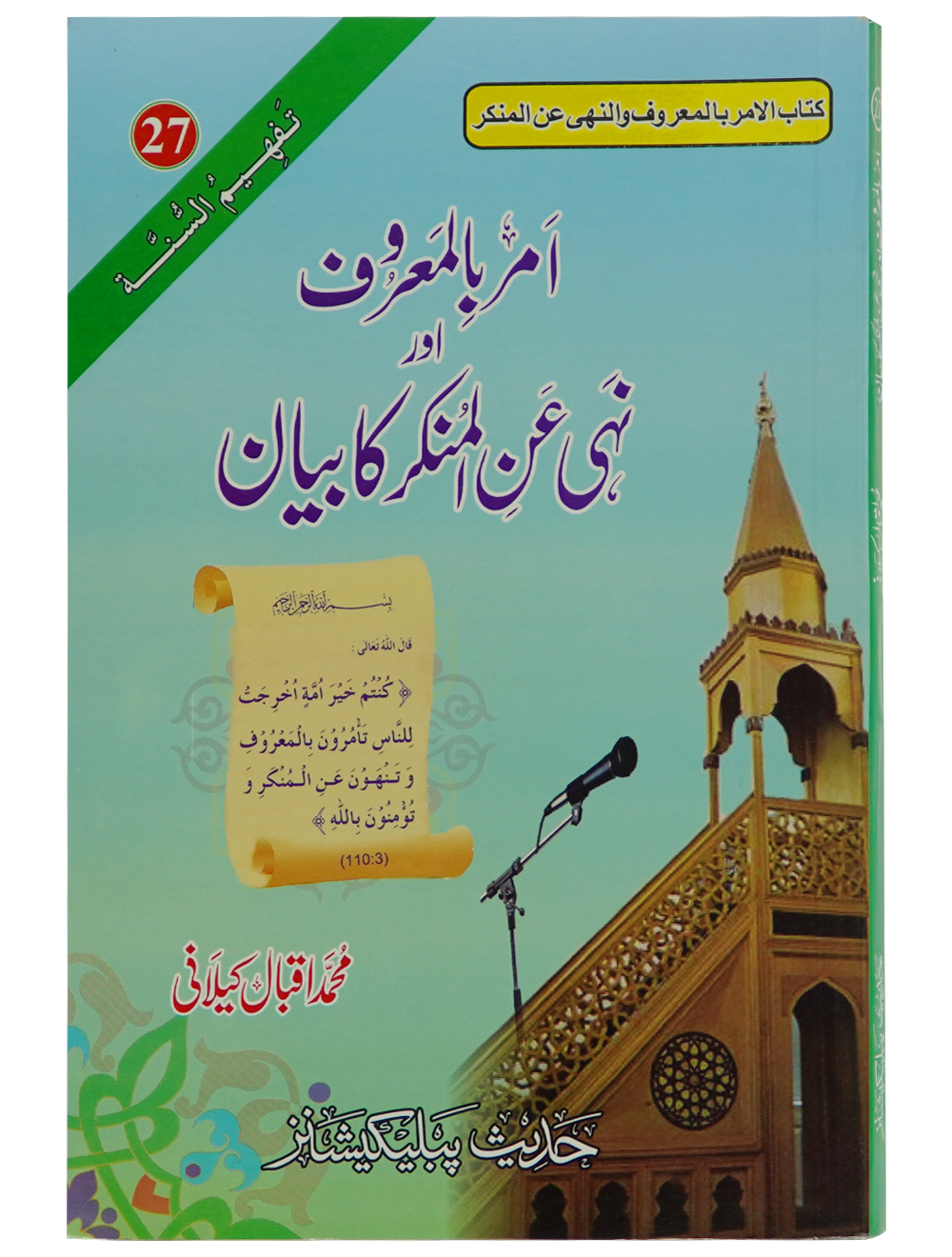
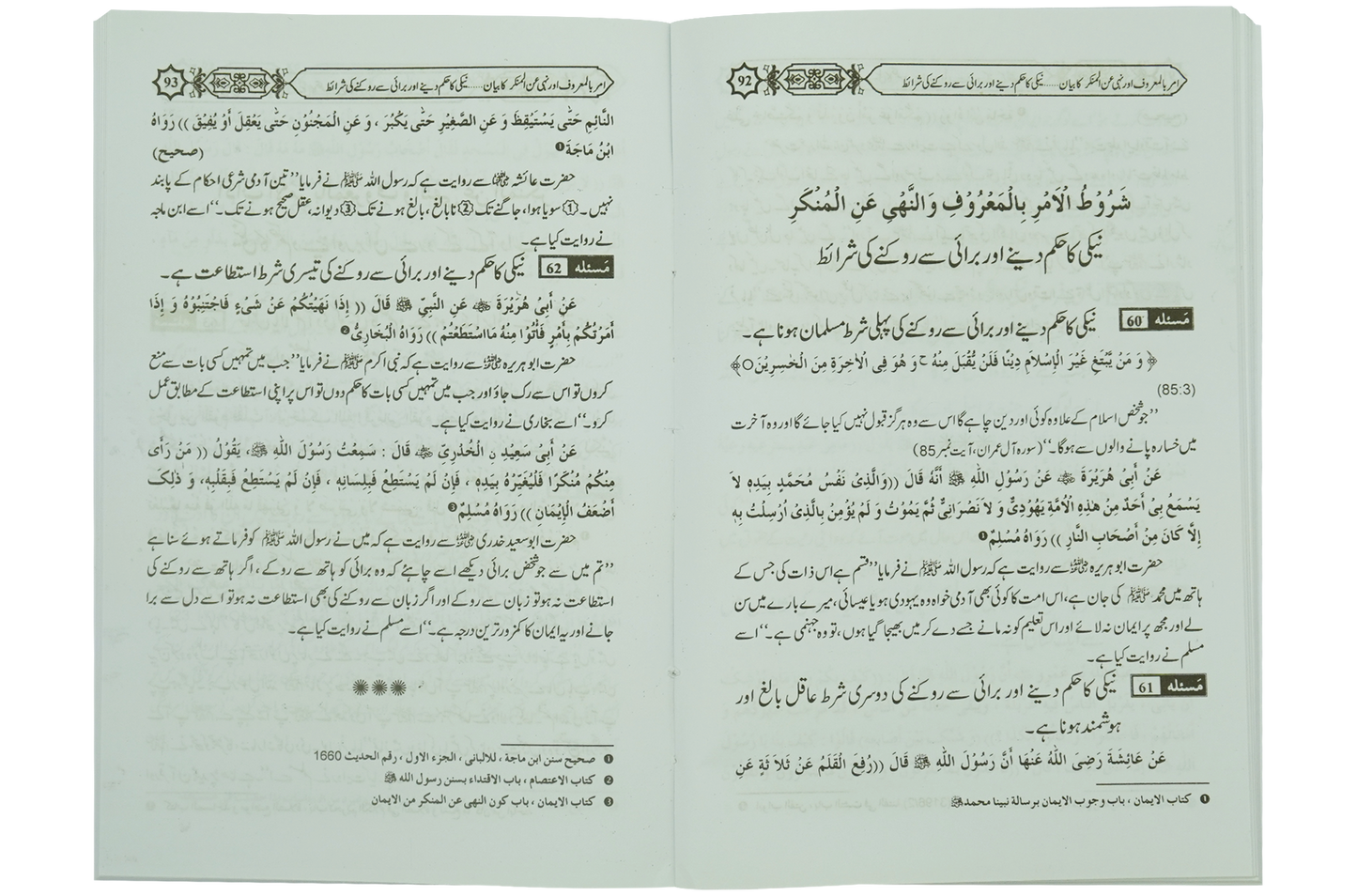
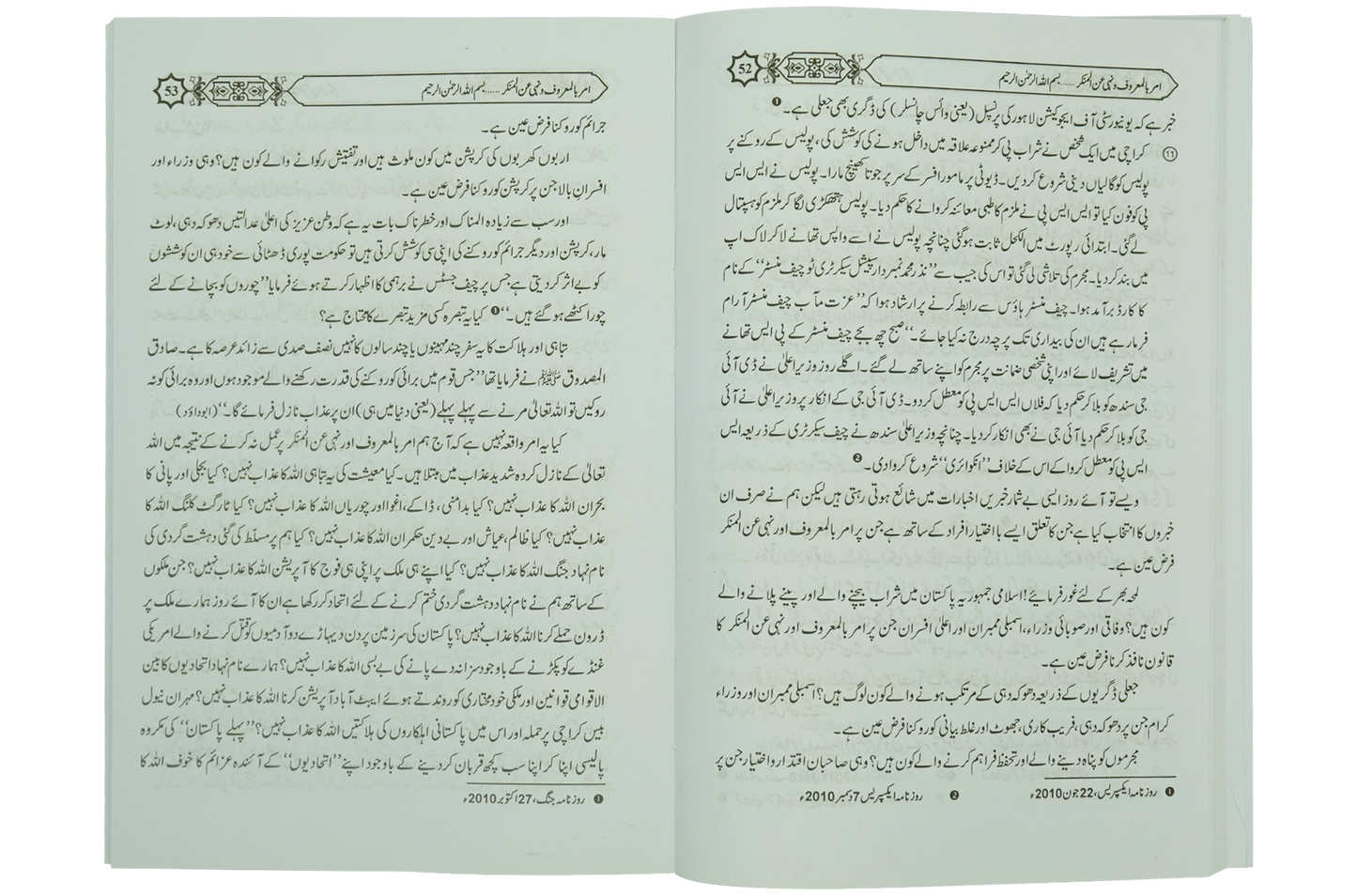
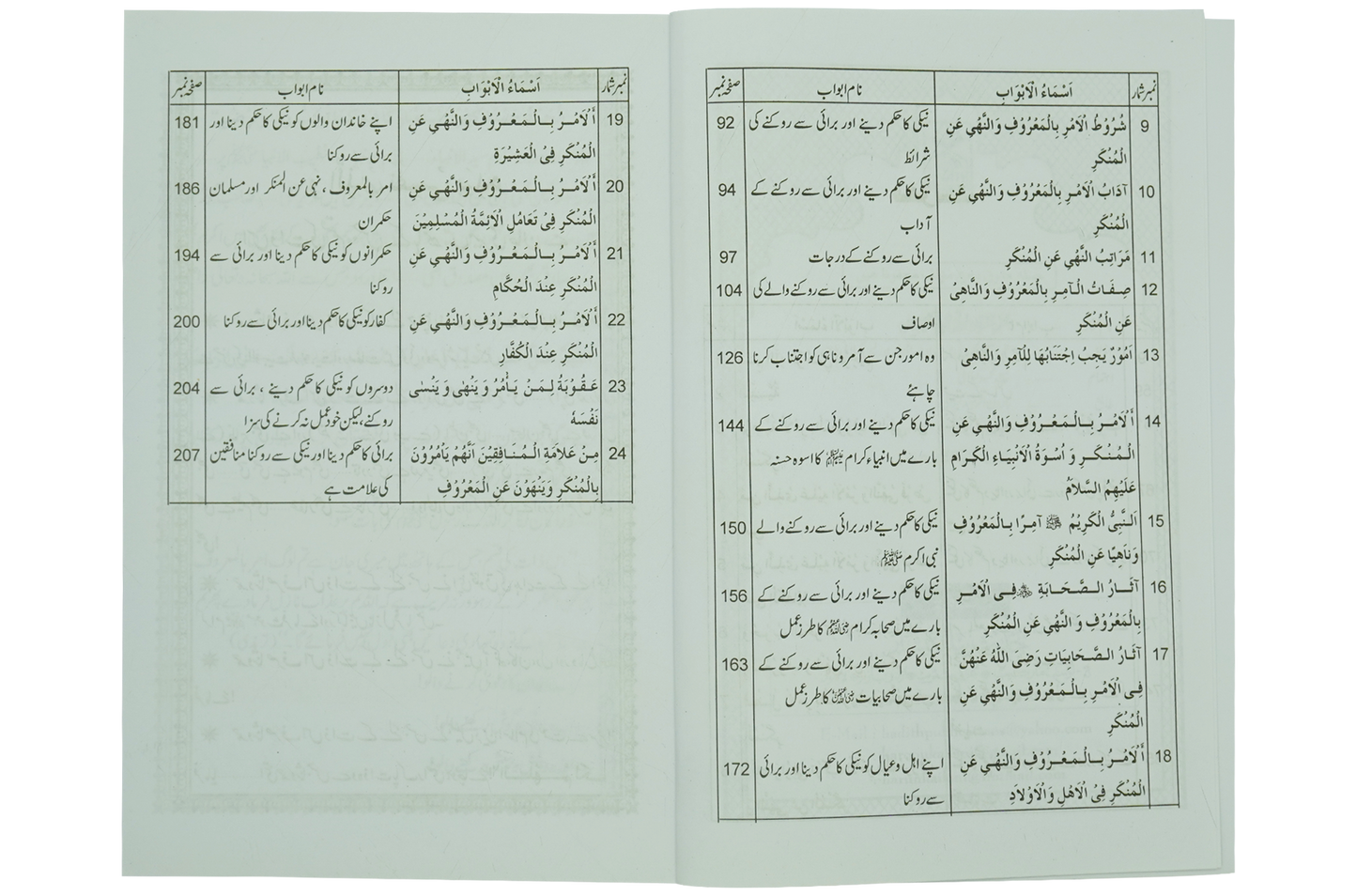
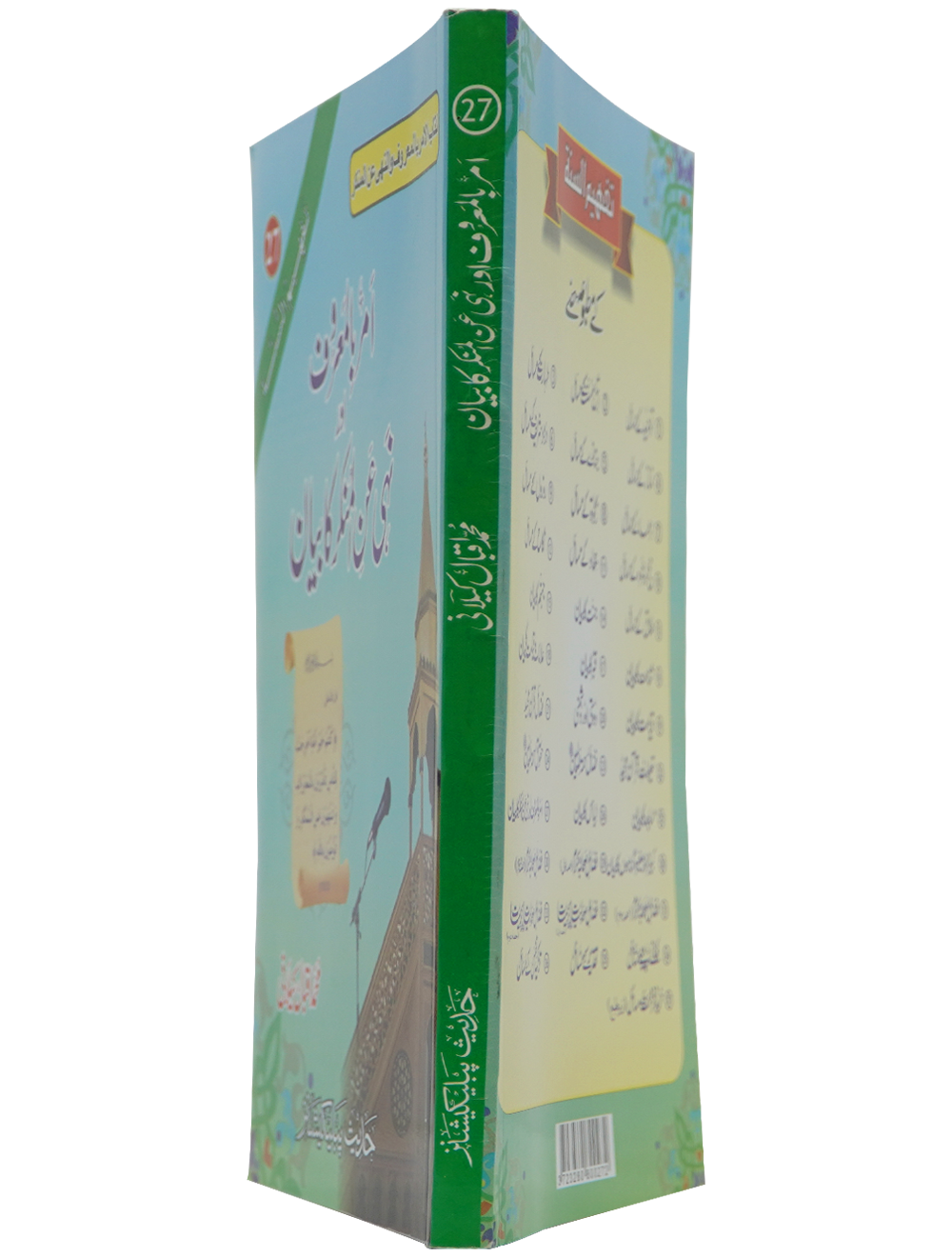
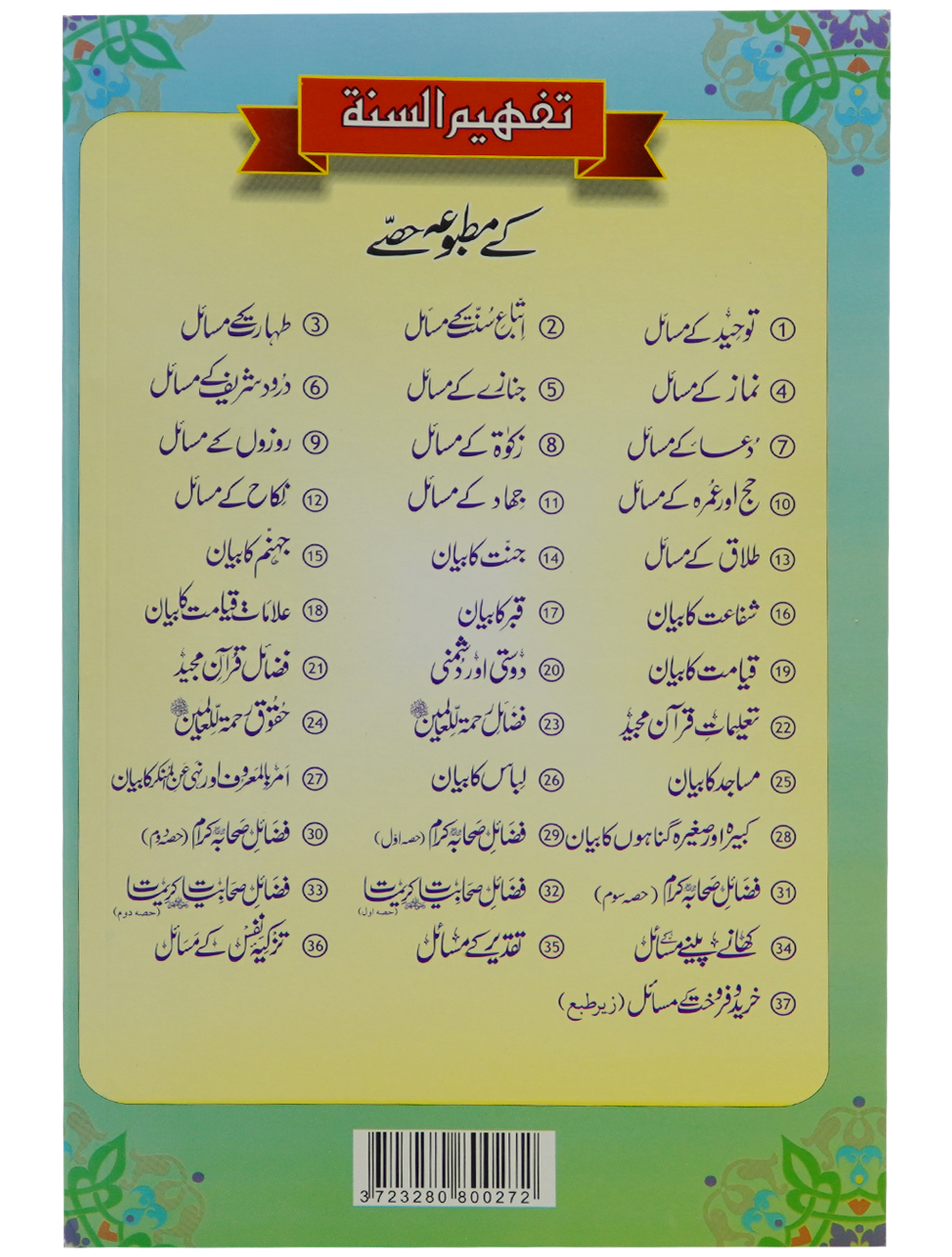
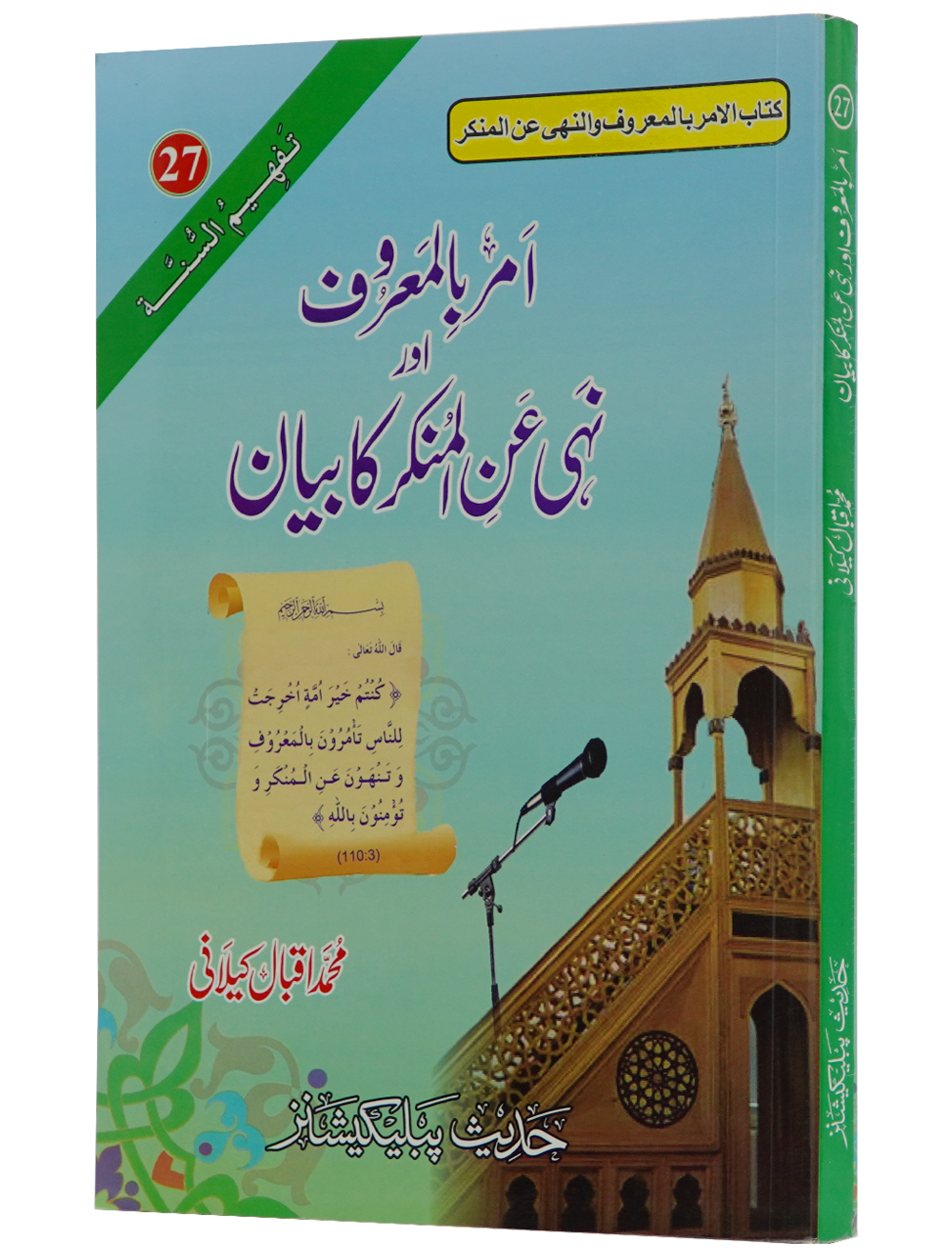
Overview:
The book "Amr bil Ma'ruf wa Nahi anil Munkar ka Bayan" (Commanding Good and Forbidding Evil) is a comprehensive and authentic work focusing on one of the fundamental principles of Islamic teachings, promoting righteousness and preventing wrongdoing. Authored by the renowned Islamic scholar Molana Muhammad Iqbal Kailani, the book explains the importance of Islamic rulings, conditions, etiquette, levels, and consequences related to this critical obligation.
The book also highlights the qualities of those who fulfill this duty and explores the societal impact of practicing this command. It serves as a guiding light for every Muslim who wishes to understand and implement this duty in their life.
The primary aim of the book is to explain this Islamic obligation through the lens of the Quran and Sunnah and to offer practical methods to implement it in everyday life. The author presents the subject with both scholarly depth and simplicity, making it accessible for general readers as well as Islamic scholars. References from Islamic history and the lives of the Companions of the Prophet (SAW) strengthen the message and show how this duty was carried out in practice.
Amr bil Ma'ruf means enjoining what is good, and Nahi anil Munkar means forbidding what is evil. This is a unique trait of the Muslim Ummah, for which it has been given the title “the best nation” in the Quran (Surah Aal-e-Imran: 110). The book stresses that this obligation is not limited to scholars or authorities; rather, it is the responsibility of every Muslim to fulfill it according to their ability.
Key Features:
Evidence from the Quran and Hadith
The obligation and virtue of commanding good and forbidding evil are supported with references from the Qur’an and authentic Hadith. For instance, verses from Surah Aal-e-Imran (104 & 110) are quoted, emphasizing its importance. The book also includes hadiths like:
"Whoever among you sees an evil, let him change it with his hand…" (Sahih Muslim)
Conditions and Etiquette
The book outlines the necessary conditions for implementing this duty, such as recognizing good and evil, ensuring a chance of positive impact, and avoiding harm. It also highlights etiquettes like advising with gentleness, using wisdom, and maintaining sincerity.
Levels of Application
Three levels of implementing this duty are discussed in detail:
-
By heart, the weakest level of faith.
-
By tongue, speaking out against wrong.
-
By hand, taking practical action to stop evil, where permissible.
Qualities of the One Who Enjoins Good
The book emphasizes the characteristics needed to effectively fulfill this duty, including knowledge, piety, sincerity, wisdom, and patience.
Consequences of Neglect
The author discusses the serious consequences of neglecting this duty. Based on the Quran and Hadith, it is explained that ignoring this responsibility leads to widespread immorality, divine punishment, and unanswered prayers. For example, the curse upon Bani Israel was due to their silence over wrongdoing (Surah Al-Ma’idah: 78–79).
Examples from the Companions
Stories from the lives of the Sahabah (Companions) are included to show how they implemented this obligation. Notable examples include Abu Bakr As-Siddiq (RA) and Umar ibn al-Khattab (RA), who led by example in promoting righteousness and correcting wrongs.
Impact on Society
The book stresses that fulfilling this obligation leads to societal reform, peace, and the prevalence of goodness. It plays a key role in maintaining ethical values and social harmony in an Islamic society.
Simple and Accessible Language
One of the book’s greatest strengths is its simple, easy-to-understand language. Even though it covers scholarly topics, the author has presented them in a way that is approachable for readers of all backgrounds.
Conclusion:
"Amr bil Ma'ruf wa Nahi anil Munkar ka Bayan" is a powerful and thought-provoking book that reminds every Muslim of their collective responsibility toward societal reform. It not only clarifies the religious rulings of this duty but also guides readers on how to apply it in real life. This book is a must-read for anyone who wants to promote good and prevent evil in both personal and community life.













